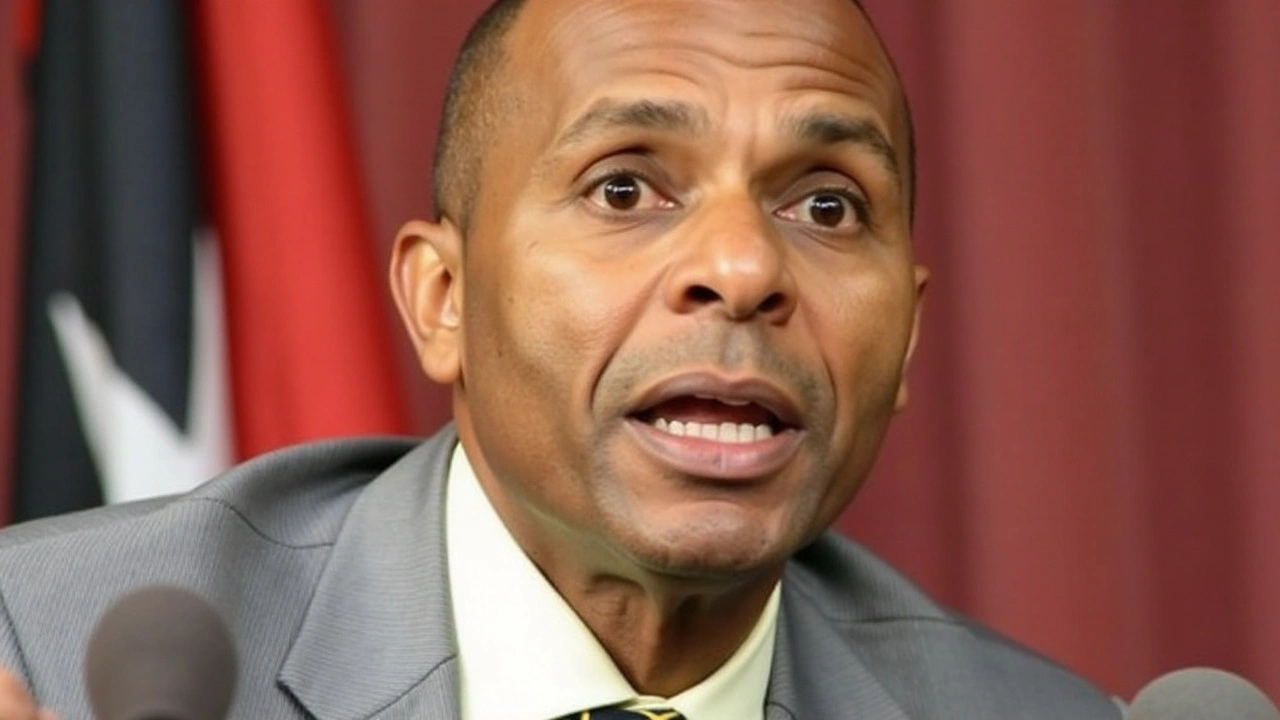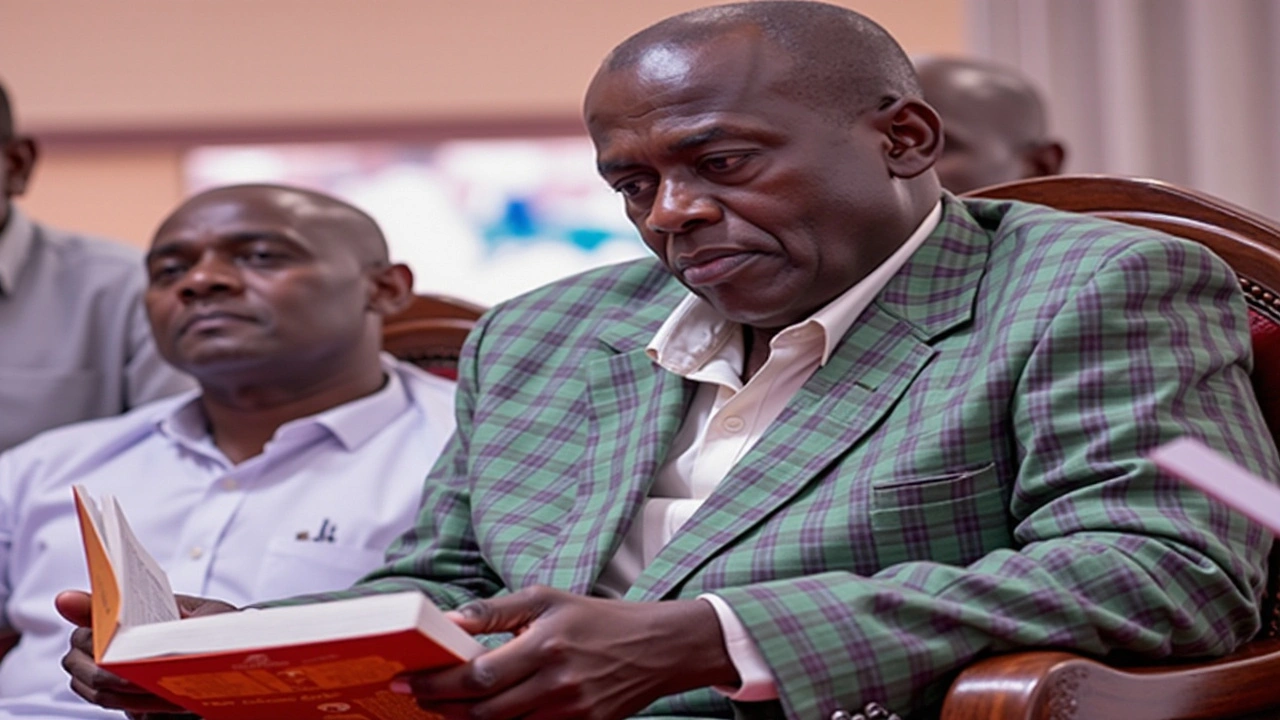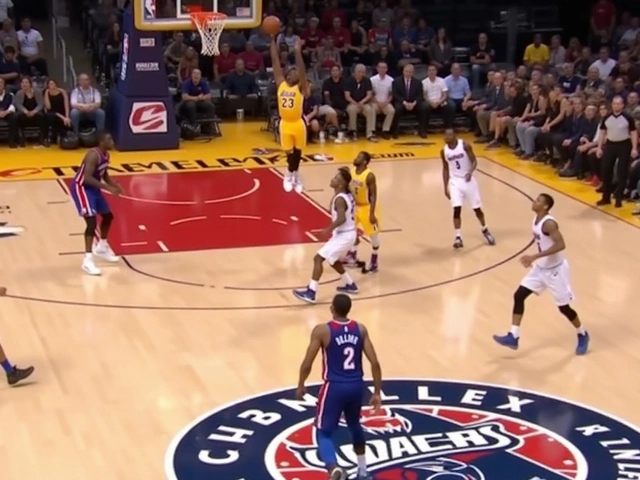Tana River Senator Mungatana Files Censure Motion Against Deputy President Gachagua Amidst Controversy

Senator Mungatana's Censure Motion: An Unprecedented Move
In a bold and dramatic move, Tana River Senator Danson Mungatana has filed a censure motion against Deputy President Rigathi Gachagua. The motion, submitted to the Speaker of the Senate, Amason Kingi, on September 23, 2024, points fingers at Gachagua's actions, which, according to Mungatana, fall far short of the expectations and responsibilities tied to the high office he holds.
The basis of the censure motion is that Gachagua, who is also a member of the ruling United Democratic Alliance (UDA), has been prioritizing regional interests, particularly in the Mt. Kenya area. This focus has seemingly come at the expense of broader national concerns, thereby compromising the uniform governance and national unity that the Constitution of Kenya mandates. Mungatana's motion explicitly accuses Gachagua of acting in a way that contradicts the national values and principles of governance outlined in the country's supreme law.
Impacts and Implications of the Censure Motion
Although a censure motion lacks the authority to remove Gachagua from office, its symbolic weight can have far-reaching ramifications. Should the Senate pass the motion, it would send a powerful signal of disapproval regarding Gachagua's conduct and focus. Moreover, it carries the potential to tarnish his reputation significantly, diminishing his standing both within the government and among the general populace.
This development comes amidst a stark backdrop of growing isolation for Gachagua within the corridors of power. Reports have surfaced indicating that various political figures from the Mt. Kenya region are increasingly distancing themselves from the Deputy President. Instead, they are shifting their loyalty towards Interior Cabinet Secretary Kithure Kindiki, signaling a notable political reconfiguration.
Allegations and Political Tensions
Gachagua has recently found himself at the heart of various allegations, fueling an already charged political atmosphere. He has publicly claimed that figures close to President William Ruto are conspiring to impeach him. These assertions have ignited a firestorm of speculation and political maneuvering, polarizing opinions across the political spectrum.
The censure motion seeks to capitalize on this period of heightened tension, potentially being an opportunity for Mungatana and his supporters to reassert the importance of national cohesion and balanced governance. The motion also aims to ignite a broader discussion within the Senate about the role and conduct expected of Kenya’s highest office bearers.

Historical Context and Future Prospects
The filing of a censure motion against a sitting Deputy President is rare in Kenya's political history. As such, this action by Mungatana sets a new precedent, potentially recalibrating the standards of accountability and conduct for future office holders. Politicians and political analysts will undoubtedly watch closely as events unfold, gauging the potential shifts in Kenya's political landscape.
The outcome of the Senate's deliberations on the motion remains to be seen. However, the debates and discussions it triggers may well serve to reinforce or reshape the dynamics of power and influence within the ruling UDA party and beyond.
Public and Political Response
The filing has elicited mixed reactions from the public and political communities. Some view the motion as a necessary step towards ensuring that those in power remain accountable to the law and the people they serve. Others, however, perceive it as a politically motivated maneuver aimed at undermining Gachagua's influence and destabilizing the current administration.
In the coming weeks, the motion will likely dominate political discourse in Kenya, with both proponents and opponents voicing their perspectives. The debates in the Senate will be closely followed by media outlets, political analysts, and the public, each keen to understand the implications for Kenya's governance and political stability.
Potential Consequences and Strategic Implications
While the censure motion itself cannot directly result in Gachagua's removal from office, its implications can be profound. A successful motion could embolden his political adversaries, potentially catalyzing further actions against him. Conversely, if the motion fails, it might reinforce Gachagua's position, demonstrating that his support base within the Senate remains robust.
Strategically, the motion places President William Ruto in a delicate position. He must navigate the competing interests within the UDA party, maintain party unity, and manage the public perception of his administration's stability. Ruto's response to the motion and his handling of the broader political dynamics will be crucial in determining his administration's trajectory.
Ultimately, the censure motion against Deputy President Rigathi Gachagua marks a significant moment in Kenya's political narrative. It underscores the persistent tensions within the ruling party and highlights the challenges of balancing regional and national interests in governance. As Kenya watches closely, the unfolding developments promise to shape the country's political landscape in the months and years to come.






Ghanshyam Shinde
September 23, 2024 AT 19:59Oh great, another drama about power‑politics – just what we needed.
Charlotte Louise Brazier
September 24, 2024 AT 23:56While I understand the passion behind the censure motion, let’s not forget that Kenya’s stability rests on dialogue, not just accusations. The Senate should use this moment to foster constructive debate rather than deepening divisions. Regional interests, like those of Mt. Kenya, can coexist with national priorities when leaders listen to each other. It’s essential to demand accountability while also offering pathways for reconciliation. We need to ensure that any criticism is backed by solid evidence, not just political theatre. The public deserves transparency about how resources are allocated across the country. A balanced approach can preserve the United Democratic Alliance’s cohesion. Moreover, it’s crucial that the Deputy President receives a fair chance to respond to the allegations. Let’s keep the conversation focused on policy outcomes rather than personal attacks. Ultimately, a united front will serve Kenya better than fragmented rivalries.
SAI JENA
September 26, 2024 AT 04:00Senator Mungatana’s initiative indeed highlights a critical governance issue that cannot be ignored. The principle of equitable development across all Kenyan regions is enshrined in the constitution, and any perceived deviation warrants scrutiny. It is also important to recognize that the censure motion, while symbolic, can set a precedent for future parliamentary oversight. I encourage all parties to approach this debate with a commitment to factual integrity and respect for institutional processes. Constructive criticism should be paired with viable policy alternatives that promote national cohesion. By maintaining a collegial tone, the Senate can demonstrate its capacity for mature deliberation. The outcomes of this discussion may influence not only the UDA’s internal dynamics but also Kenya’s broader democratic trajectory. I look forward to seeing a reasoned and evidence‑based resolution.
Donny Evason
September 27, 2024 AT 08:20The political theater surrounding this motion is reminiscent of past regional power struggles that have shaped Kenya’s history. Yet, we must acknowledge the legitimate concerns of constituents who feel marginalised. By framing the debate as a clash of regions, we risk overlooking the shared aspirations of all Kenyans. A thoughtful analysis should consider both the Deputy President’s track record and the Senate’s oversight role. It is possible to critique policy without descending into partisan vitriol. In the end, effective governance requires bridging divides rather than widening them.
Hariom Kumar
September 28, 2024 AT 12:40Hopeful vibes! 😊
Phillip Cullinane
September 29, 2024 AT 17:00Reading through the latest developments, it becomes clear that the censure motion operates within a complex matrix of political capital, institutional legitimacy, and stakeholder alignment. From a governance perspective, the motion can be interpreted as a signal of intra‑party disequilibrium, which may affect macro‑level policy coherence. Moreover, the legislative oversight function, as codified in the Kenyan Constitution, provides a procedural avenue for addressing perceived executive overreach. Empirical studies on parliamentary censure mechanisms indicate that while they lack direct punitive power, they often catalyze executive accountability through reputational risk. In this context, the Deputy President’s regional prioritisation could be modeled using a resource‑allocation framework to quantify impact differentials across constituencies. Data‑driven analysis would reveal whether the allocation deviates significantly from baseline equity indices. If such deviation is statistically significant, it would substantiate the Senate’s concerns about imbalance. Conversely, if the variance falls within acceptable tolerance thresholds, the motion may reflect political opportunism rather than substantive grievance. Stakeholder theory suggests that both the electorate and internal party actors possess vested interests that shape their strategic responses. Communication theory also posits that framing effects can amplify or mitigate public perception of the motion’s legitimacy. Therefore, media narratives will likely influence the political calculus of both the Deputy President and the Senator. From an institutional design viewpoint, this episode underscores the necessity for clear procedural guidelines governing censure motions. It also raises questions about the efficacy of symbolic instruments in effecting policy change. Future research could explore comparative case studies from other parliamentary democracies to assess outcomes of similar motions. Ultimately, the intersection of political strategy, constitutional law, and public administration will determine whether this censure motion translates into tangible governance reforms.
Janie Siernos
September 30, 2024 AT 21:20We must uphold ethical standards above partisan games.
joy mukherjee
October 2, 2024 AT 01:40I hear the frustration many Kenyans feel when they think leadership is favouring one region over another, and that sentiment is genuine. It’s painful to see political rivalry eclipse the shared goals we all have for progress. While I don’t claim to have all the answers, I believe open dialogue can soften the tension. Let’s try to understand the underlying concerns that drive both sides of this debate. If we focus on concrete solutions-like equitable infrastructure funding-rather than personal attacks, we can move forward together. 🌍
Rob Chapman
October 3, 2024 AT 06:00Hey folks this is a wild political ride
Delaney Lynch
October 4, 2024 AT 10:20Wow, what a development, indeed, the Senate’s decision could reshape the entire political landscape, and we must watch it closely, because every move matters! The implications are vast, covering everything from party unity to national policy direction, and the public’s trust hangs in the balance! Let’s keep the conversation civil, fact‑based, and productive, ensuring that we contribute meaningfully rather than adding noise!.
Nicholas Mangraviti
October 5, 2024 AT 14:40Balance is key, not division.
Jared Greenwood
October 6, 2024 AT 19:00National unity demands decisive action against regional bias, period.